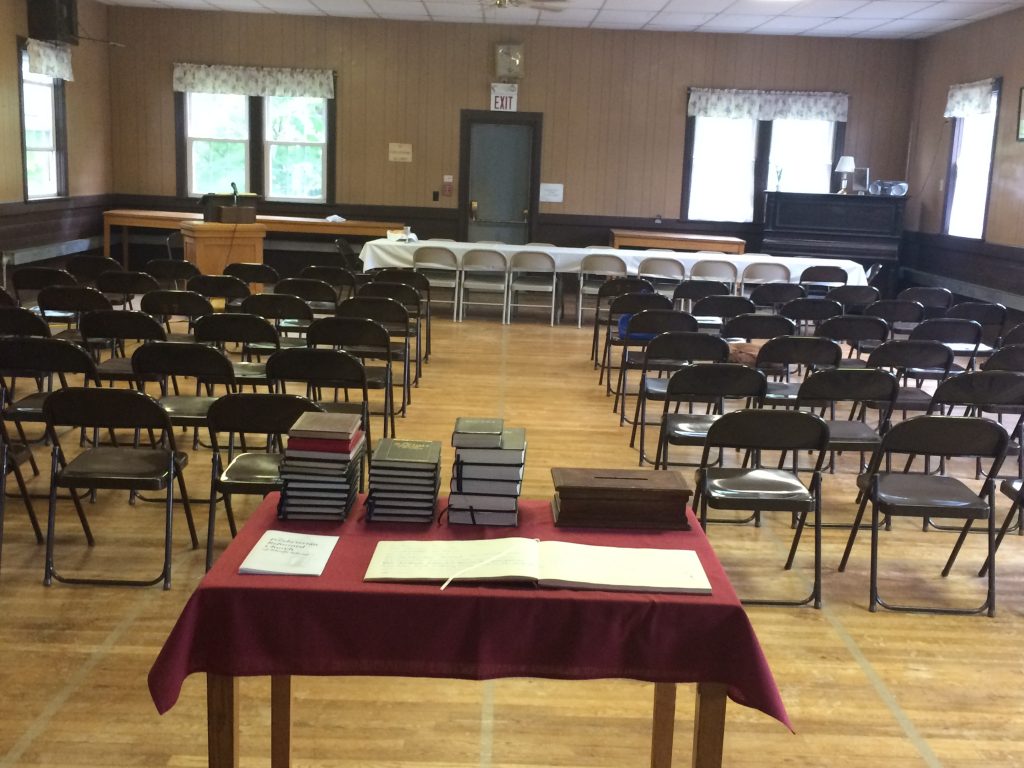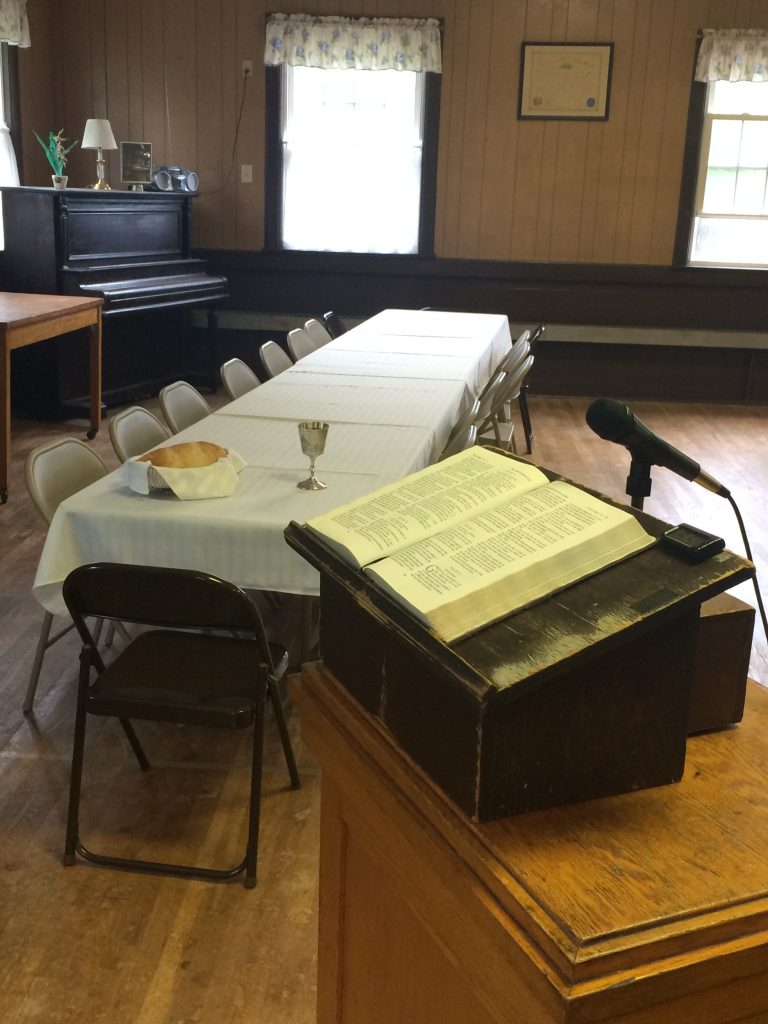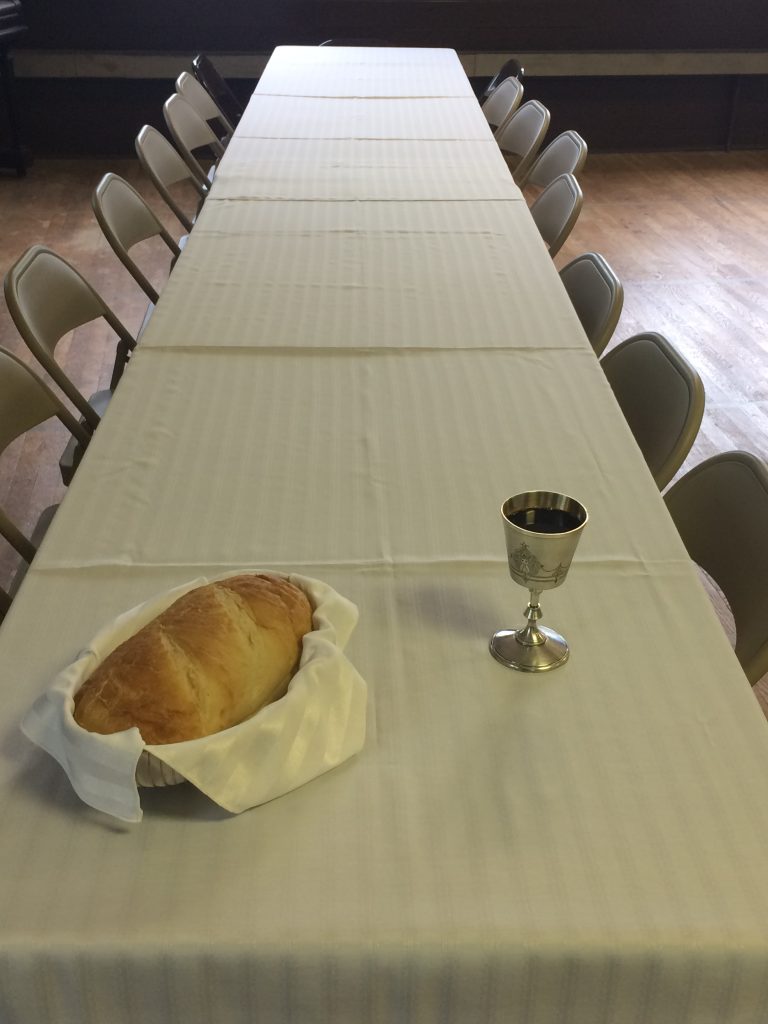In our worship, God’s Word is primary. We commit ourselves to reading God’s Word, proclaiming God’s Word, singing God’s Word, and sacramentally observing God’s Word.
We generally devote time to the public reading of

Our sermons are generally expository, sequentially studying a book of the Bible, verse by verse. This has often been called the practice of lectio continua in the history of the Church. It binds the preacher to study each verse in context, to find the grammatical and historical meaning. It keeps him from the danger of reading into the text what he wants and requires him to speak the whole counsel of God to the people of God. We cannot cheapen God’s Word by ‘cherry picking’ what we like and leaving the rest.
Yet, our afternoon messages are sometimes topical, on practical subjects. Even then, it is our concern to anchor the lesson in the Word of God, that our minds may be shaped by the mind of the Spirit speaking in Scripture.
All faithful preaching should be faithful to the text, sound in doctrine, and applicatory, touching the hearts and lives of God’s people. We embrace the godly ‘experimental’ or ‘experiential’ tradition of our Presbyterian and Puritan forbears. We aim for conversion and true godliness in heart and life.
Sermons preached at the Presbyterian Reformed Church of R.I. are available here. Short ‘bite-sized’ audio clips can be accessed here.
Our practice of catechetical instruction on 2nd and 4th Lord’s Days is to study the central doctrines of the Christian faith by way of the Westminster Shorter Catechism. The instruction involves significant memorization, repetition, and guided, teacher-led questions to lay a solid foundation in the hearts and lives of the children. They are the next generation of the Church.

We sing the psalms without musical accompaniment in the worship of God. This simple liturgy was the universal practice of the old Pilgrim and Puritan churches of New England. We believe this practice to be agreeable to the teachings of God’s Word, where we are taught that God only approves of worship that He has clearly commanded in Scripture. We may not invent or borrow our worship practices from the heathen (Deut. 12:28-32). This is also called the ‘regulative principle of worship.’ To read more, click here. To listen to messages unfolding these and other principles, begin listening here.
We believe in the Sabbath, a day wholly dedicated to the Lord for public and private worship as congregations, as families, and private believers. It is not to be abused by unnecessary work or frittered away in common recreations that are allowable on other days. Our Lord tells us to “call the Sabbath a delight, the holy of the LORD, honorable” (Isa. 58:13-14). As our Lord rose from the dead on the first day of the week, and as the apostles set an example for worshipping on that day, we believe that the Lord has shifted the Sabbath to the first day of the week, fittingly naming it the “Lord’s day” (Rev. 1:10).
We believe in the Sabbath, a day wholly dedicated to the Lord for public and private worship as congregations, as families, and private believers. It is not to be abused by unnecessary work or frittered away in common recreations that are allowable on other days. Our Lord tells us to “call the Sabbath a delight, the holy of the LORD, honorable” (Isa. 58:13-14). As our Lord rose from the dead on the first day of the week, and as the apostles set an example for worshipping on that day, we believe that the Lord has shifted the Sabbath to the first day of the week, fittingly naming it the “Lord’s day” (Rev. 1:10).
Outside the church gatherings, we encourage ‘family worship.’ Abraham commanded his children after him (Gen. 18:19), Joshua led his family in religion (Josh. 24:15), and Moses taught all Hebrew parents, and especially fathers, to teach their households in the way of the Lord (Deut. 6:6-7). We counsel every family to gather daily to read Scripture, sing psalms, and pray together.
Finally, as a congregation we seek to observe the sacraments as the Lord has delivered them to us. These are God’s visible Word, which signify and seal Christ and His benefits to the elect.

We usually celebrate the Lord’s Supper three times per year, on the 3rd Lord’s Day (Sunday) of January, May, and September. On the preceding Lord’s day, we have a ‘preparatory’ service, where members are urged to examine and prepare their hearts for the sacrament. At the observance, we invite the ‘communicants’ to a common table at the front of the church. The celebration involves a shared loaf of broken bread, as well as a common cup of wine. Both are distributed in turn to each member seated at the table.
All those who are full members in good standing of this or any other congregation of the Presbyterian Reformed Church are welcome to celebrate the Lord’s Supper with us. Members of other churches that confess the same Gospel and who visit with the elders in advance are also welcomed to participate. This practice is often called ‘close communion.’ It aims to welcome any and all true believers to partake of their Lord’s feast of love, yet it is concerned not to allow those who are ignorant of the Gospel, who live in an openly non-Christian manner, or who are not under the care and oversight of a local church.
As for baptism, we baptize any outsiders who give clear evidence of personal faith and repentance. However, we also believe in ‘household baptism,’ that families of one or more believing heads of households should also be baptized. The New Testament gives us three examples of this kind of baptism (1 Cor. 1:16, Acts 16:15 & 33). The principle of including dependents of believers in the Church of God reaches back into the Old Testament. It is also why, by extension, we baptize the newborn infants of believers, just as Hebrews circumcised their male newborns.
Baptized children of the church, while not eligible to come to the Lord’s Supper until they are of age and give a credible profession of their own faith, are like all other visitors asked to be witnesses to the celebration and are urged to seek Christ (1 Cor. 11:28). Any baptized members or regular visitors interested in joining the church are encouraged to speak with the minister to arrange a season of instruction in the basics of the Christian faith and the benefits and responsibilities of membership.

